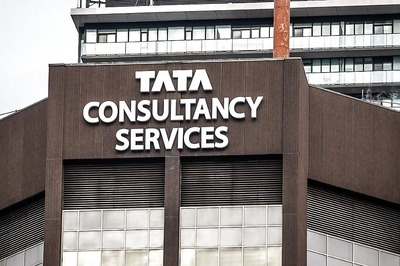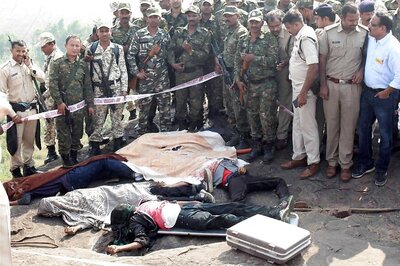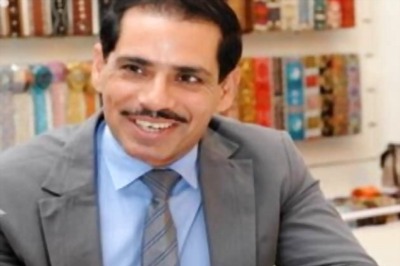
views
Kathmandu: Nepal on Friday detained five ministers in the former royalist government, the state television said, bowing to demands of pro-democracy activists to act against those responsible for a crackdown on popular anti-king protests.
King Gyanendra gave into last month's mass demonstrations against his absolute rule and handed power back political parties after 17 people were killed and thousands injured in the crackdown.
State radio said police had picked up Kamal Thapa, Rameshnath Pandey and Shris Shumsher Rana. Thapa was home minister. Pandey and Rana held the foreign and information posts respectively. Tanka Dhakal and Niksha Shumsher Rana, two other ministers in the king's cabinet, were also detained.
"They have been detained for 90 days and they are at being held at a police academy in Kathmandu," state TV said. Officials could not be reached for comment but pro-democracy activists have been demanding action against royalist officials they say were responsible for the crackdown on the protests.
A high-level panel is investigating the "excessive use of force" by the royalist government during the anti-king protests.
"The move (to detain ministers) could have been aimed at satisfying the demands made by the protesters and help the panel carry out its work," said Rajendra Dahal, editor of the news magazine, Himal.
On Friday, two senior Maoist leaders released from jail urged Nepal's new government to free hundreds of their jailed comrades before starting peace talks to end a decade-long revolt.
Nepal's government, which was formed last month, has agreed a ceasefire with the Maoist rebels, and both sides have decided to hold talks to end the revolt in which more than 13,000 people have been killed.
But Matrika Yadav and Suresh Ale Magar, who were released on Thursday, said Maoist prisoners should be first be freed and information provided about hundreds of others who they said had disappeared after being detained by security forces.
"We will not sit for the talks until our comrades are freed," Magar told reporters, a day after being released following two years in jail.
Yadav said there were 1,400 Maoist leaders or workers in different jails, including 140 in neighbouring India and four in China.
There was no immediate comment from the government. The Maoists want to be included in an interim government, which would supervise elections for a special assembly to draw a new constitution and decide the future of monarchy.
No dates for peace talks have yet been fixed, but Yadav said he hoped they would be "conclusive" this time.
Previous talks between the Maoists and the government failed in 2001 and 2003.
The Maoists have been fighting since 1996 to set up one-party communist rule in the Himalayan kingdom. But they now say they will accept any constitution agreed to by the special assembly.



















Comments
0 comment